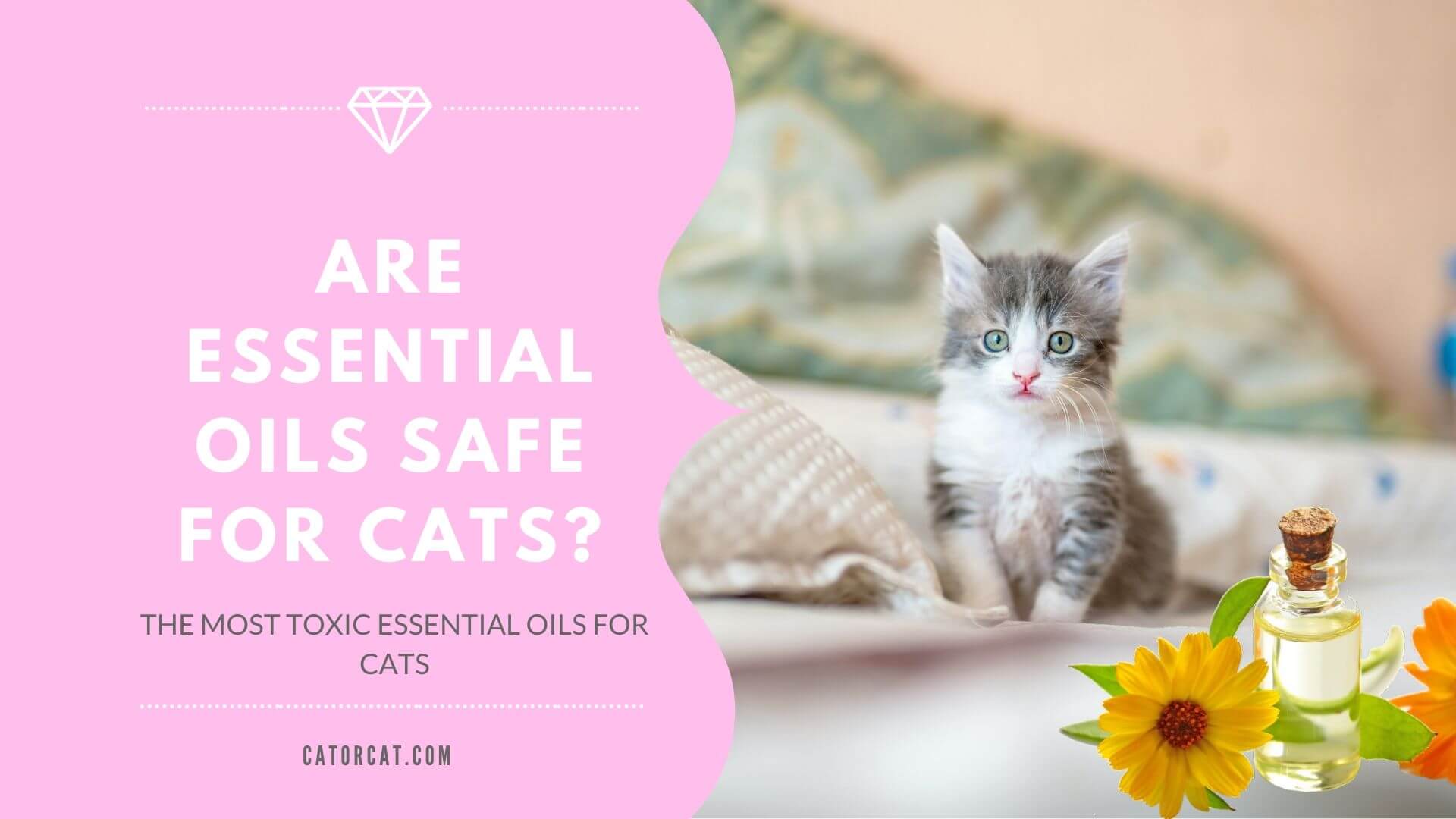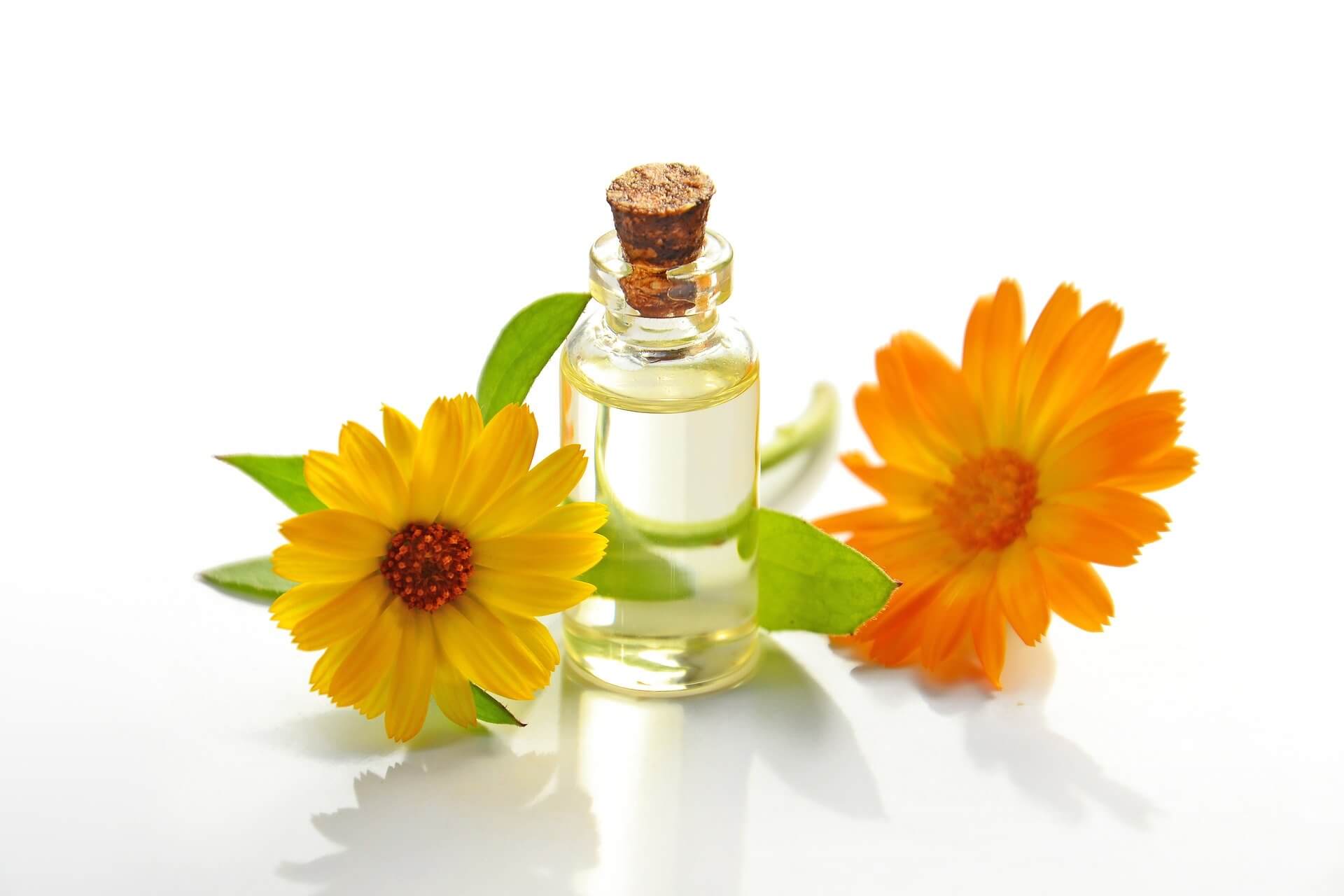
Essential oils are all the rage today due to their alleged health benefits. They’re used in a multitude of applications, from aromatherapy to topical applications, household items, personal care products, and even cosmetics.
If you have pets, you might be curious as to their safety when cats inhale, ingest, or when the oils get to their skin. If essential oils are part of your beauty or mindfulness routine, then it’s about time you reconsider using them around your cats.
Essentials oils pose a great risk to cats. They can be toxic and harmful, leading to a number of symptoms, and even the risk of liver damage, or worse, death in your cat.
So what makes it toxic to cats and why should you consider not using it around them? Let’s take a deeper look.
What are Essential Oils?
Essential oils are natural and highly concentrated oil extracted from plants. They can be extracted from the roots, stems, leaves, flowers, or fruits of certain plants. They are known for their aromatic properties, as well as medicinal benefits.
Essential oils are believed to contain scent molecules that when inhaled, are directly absorbed into the brain, causing the amygdala a broad range of effects. These effects range from relaxation, sleepiness, feeling of invigoration, boosts mood, and other emotions.
The methods of using essential oils range from topical application, candles, heat diffusers, candle burners, room sprays, liquid potpourri, household cleaning items, fragrances, personal care products, and cosmetics.
Effects of Essential Oils on Cats
When cats are exposed to essential oils in any form, the molecules are rapidly absorbed in their body. However, unlike humans, where we metabolize the molecules easily in our liver, cats don’t have the enzyme needed to metabolize these molecules.
Essential oils, since they are extracted from part of plants, contain phenols, or phenolic compounds. These compounds need to be metabolized by the liver to be safe for inhalation, topical application, or ingestion. For humans, there’s no problem. But for cats, phenols are extremely toxic.
Cats lack the necessary essential enzyme, called cytochrome P450, that metabolizes the phenols found in essential oils. Without this enzyme, phenols remain in the cat’s body, causing a number of undesirable symptoms, liver damage, and even death.
The higher the concentration of the essential oil, the greater the possibility of toxicity for your cat.
Related: Toxic foods for cats

Symptoms of Essential Oil Poisoning
In their most concentrated form, which is at 100%, essential oils are an absolute danger to cats. If you use essential oils in a diffuser or for any purpose, and you think your cat may have ingested or inhaled the oils, then you must lookout for the following symptoms:
- Drooling
- Low blood pressure
- Low heart rate
- Tremors
- Vomiting
- Ataxia (Wobbiness)
- Liver failure
- Respiratory distress such as labored breathing, fast breathing, panting, coughing, wheezing
- Burning sensation in the nose and throat
- Watery nose/eyes
If you have essential oils lying around the house, or if you use a diffuser for aromatherapy, and your cat displays some of these symptoms, it’s best that you bring your cat to the vet immediately.
You may not know it, but your cat may have liver damage or liver disease that you don’t know about. If they do, exposure to essential oils could be deadly.
If your cat has asthma or suffering from respiratory problems, inhalation of these essential oils could cause acute respiratory distress, and could also be fatal.
Related: Can cats eat fruit & vegetables?
The Most Toxic Essential Oils for Cats
Some experts say that there are a few essential oils that are safe for cats, such as lavender, copaiba, frankincense, and helichrysum.
Some also say that using a diffuser is safe around cats since the oils used in diffusers are diluted and not 100% concentrated.
As long as you use the diffuser in an open-air space, not confined, and the cat can freely go out of the room into fresh air, then they say essential oils are safe.
However, because there is no FDA regulation with essential oils, consumers can’t really make sure that the oils they expose to their cat are always “organic,” or “certified pure.”
At all times, the following essential oils must be avoided since they’re poisonous to cats:
- Wintergreen
- Ylang Ylang
- Peppermint Oil
- Citrus Oil
- Pine Oil
- Cinnamon Oil
- Eucalyptus Oil
- Oil of Sweet Birch
- Tea Tree Oil
The best thing to do is to make sure your cat does not get a hold of your essential oils at all times. If you need to use a diffuser, it’s best that you make sure your cat is not in the room. When you buy household products, make sure they don’t contain any of the toxic essential oils listed above.
Related: Is Marijuana Toxic to Cats?
The Bottom Line
As pet owners, it is our sole responsibility to make sure the environment you provide for your pets are safe and comfortable. Though essential oils may be good for us, they may not be so great for our pets.
It’s important to talk to your vet regarding any new products you intend to use around your cat. This way, you are more aware of the health hazards your lifestyle can bring to your feline friends.
Related: CBD Oil for Cats
